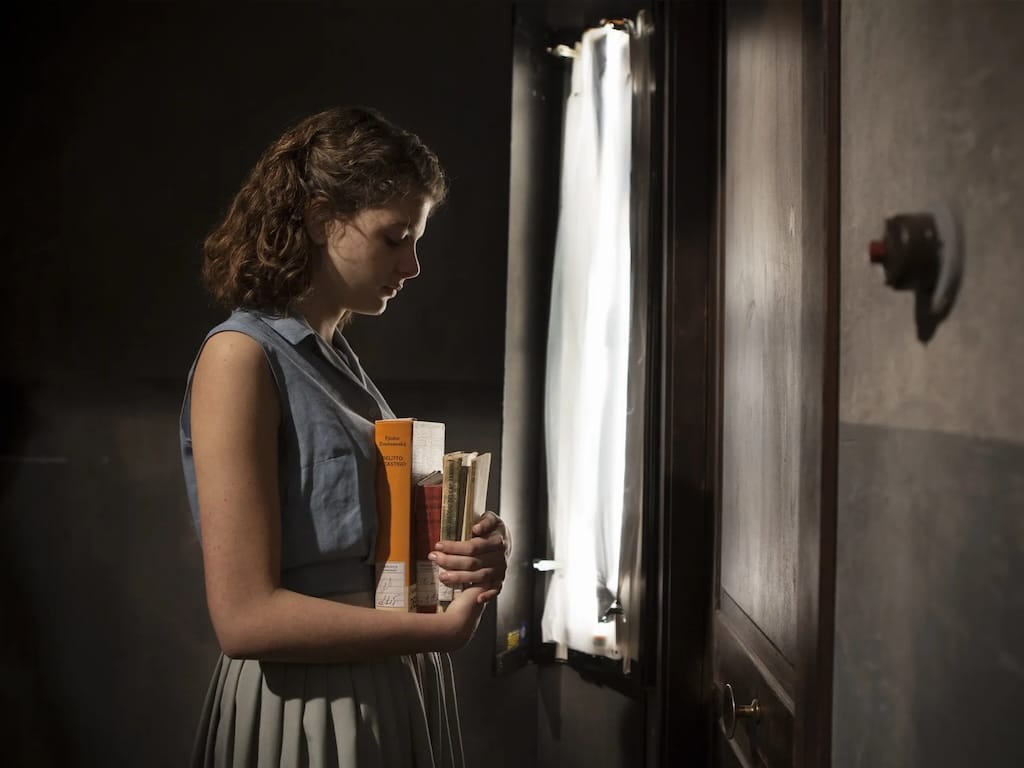Quick summary:
During (Elena's dream of) Don Achille's funeral procession, the children of the neighborhood grow up: the young cast is replaced with an older one and many fantasies (e.g. Louisa May Alcott) give way to practical reality. With Elena (Margherita Mazzucco) in middle school and Lila (Gaia Girace) working at her father's cobbler shop, the girls have grown apart. When Elena gets her period and runs to her old friend for reassurance, she's treated with contempt. Between these physical changes and her poor performance in school, Elena struggles to harness her old ambition until she learns that Lila has been secretly studying without her. Amongst these developments, the Solara brothers wield their newfound power over the neighborhood. The only person who successfully challenges their nonsense is Lila, a girl 7 years their junior with 10,000x their intellect.
Corresponding book chapters:
"The Metamorphoses" begins at "Adolescence" and stops at Chapter 14. Per usual, certain events from the book are rearranged or omitted, like the flash-forward to Lila's first episode of dissolving margins in Chapter 1.
Notable choice (complimentary):
The cast swap is handled exceptionally well, with the young actors seamlessly morphing into their older counterparts. In one shot, child Enzo begins pushing his fruit and vegetable cart out of frame; after the cut, he's believably aged several years.
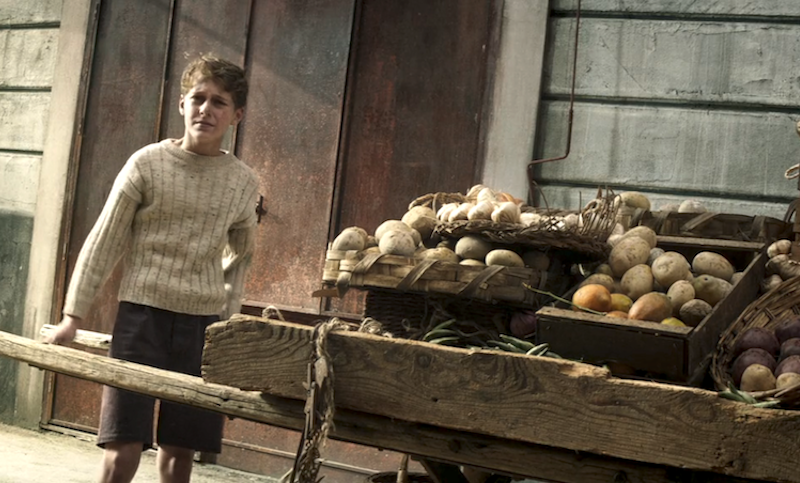
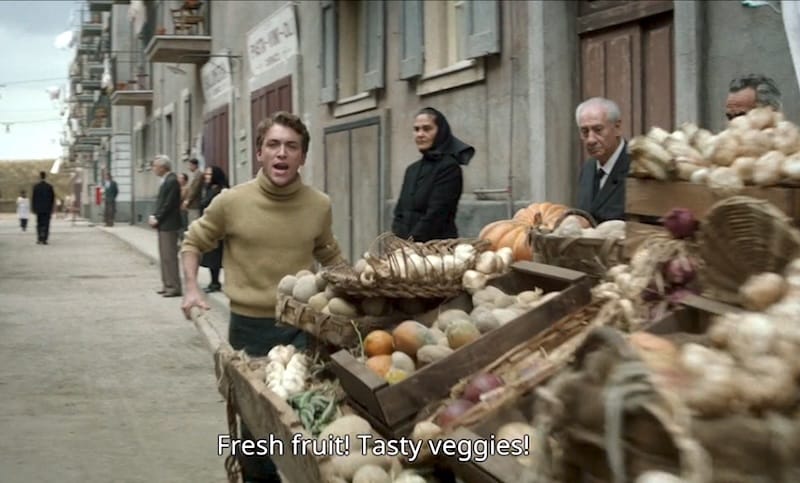
Vincenzo Vaccaro (l) and Giovanni Buselli (r) could easily be brothers. Hats off to casting directors Sara Casani and Laura Muccino.
Each transformation is handled in a slightly different way. The Solara brothers are immediately older, with no trace of their younger selves. This makes sense for them considering they didn't have much of a childhood c/o their swift indoctrination into the family "business." Stefano, Pinuccia, and Alfonso age over the course of the funeral procession in a poignant visualization of grief.
As the crowd walks down the street, child Lila (Ludovica Nasti) stands off to the side, pointing and laughing like the wise oracle who sees what no one else can. Once they've passed, teen Lila is revealed, still laughing as the camera moves toward her now outstretched palm. A small hand clasps hers and young Elena (Elisa del Genio) comes into view. As they both peer through the window of the Solaras' Fiat 1100, Lila's nose begins to bleed. In the next scene, teen Elena jolts awake from a dream. Of course this weird opening cortege, set to Max Richter's "Interior Dialogues," would take place solely in our writer/protagonist's head.
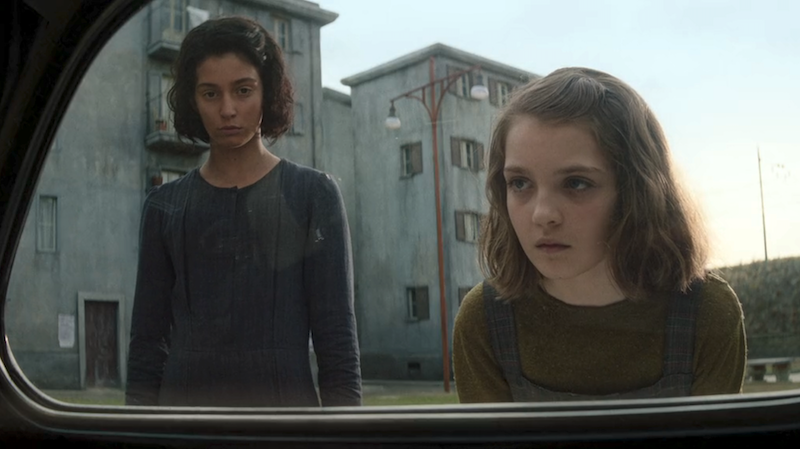
What I appreciate most is how the sequence manages to stay true to the novel by foreshadowing evil (the Fiat) and hinting at the distance between Lila and Lenù. Although they are the same age, Lila has been thrust into a new phase of life where she's expected to help support her family; Lenù is still in school, so her situation has remained more or less the same. Maybe this is why Lenù sees herself as a child in her dream.
Notable choice (derogatory):
Once again, my biggest gripe with the adaptation is how much nicer Lenù seems. In the book, we're privy to her most awful thoughts and trust me: they are AWFUL. She's the type of Virgo who constantly talks shit, but only in her head. Here's what she says about her first year of middle school:
In some very secret part of myself I looked forward to a school where [Lila] would never enter, where, in her absence, I would be the best student, and which I would sometimes tell her about, boasting.
Lenù has an insatiable need for validation and while it grosses me out, I respect her transparency. Deep down, she knows she's an asshole.
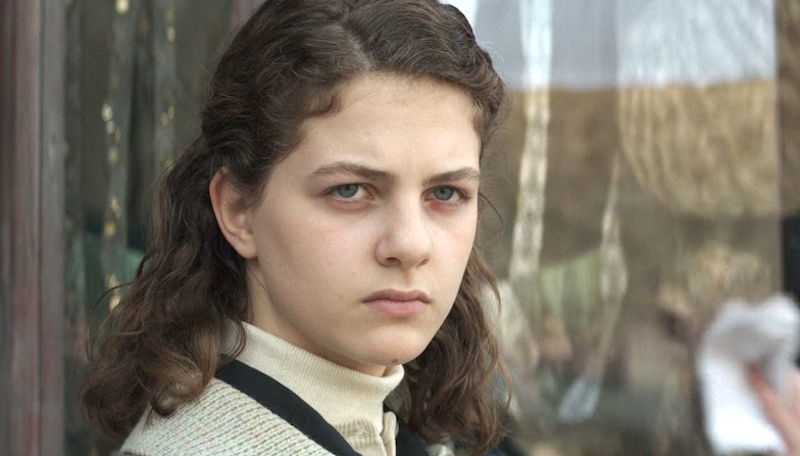
Thoughts:
Margherita Mazzucco perfectly portrays these awkward early teen years when self-loathing skyrockets. Elena is never at ease. She wanders through the neighborhood, touching her acne-marked face and fighting back tears, silently lamenting over Lila's disinterest in her life. Lenù is the kind of person who crumbles under hardship because she internalizes her needs and grows bitter if they're not magically intuited. Once she starts performing poorly in school, all motivation dissipates and she's resigned to failure. It's a defense mechanism to avoid showing vulnerability. With a mother as comforting as a prison guard, it's no wonder she would rather suffer in silence than open herself up to derision.
What Lenù fails to recognize, even as an adult, is that Lila has similar insecurities that manifest in different ways. There's a mutual fear of rejection, but while Lenù absorbs and compartmentalizes the wounds, Lila staves them off preemptively with meanness. It's much easier to say, "Fuck you and your disgusting vagina blood" (I'm paraphrasing) than to admit that between this new development and middle school, it feels like she's been left behind. In the novel, Lenù responds to this harshness with lies about her nonexistent academic prowess. If Lila can't be kind to her in a time of need, there's no way she's copping to her own mediocrity. The show leaves this out, making Lenù seem like a victim of Lila's cruelty when in reality, she's playing her own games.
She started to leave but then stopped and asked me, "How's Latin?"
"Wonderful."
"Are you good at it?"
"Very."
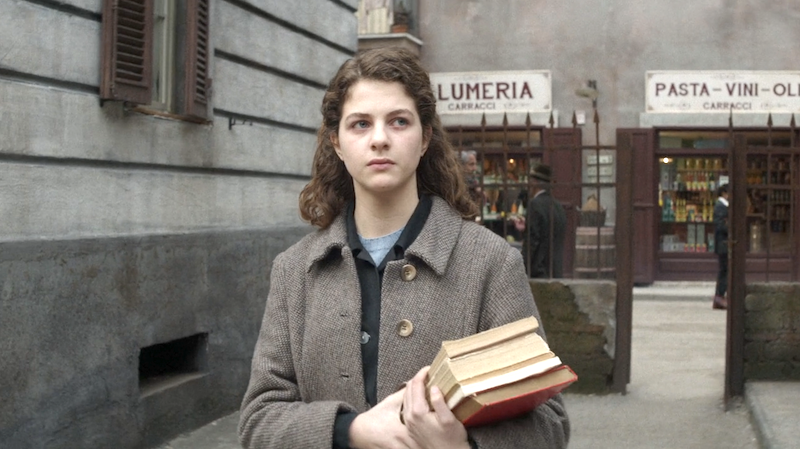
Their friendship is a delicate balance of sharing and withholding — to cause hurt, preserve ego, avoid unwanted criticism, and receive undeserved praise. In many reviews that I've read of Ferrante's series, there is a tendency to villainize Lila while overlooking the petty shit that Lenù does. I'm on no one's side in these early years. A mix of jealousy and inferiority leads both to stupid decisions. Neither girl is mature enough to acknowledge her own shortcomings or find ways to compensate for them. As nasty as they can be to each other, their codependency makes the friendship last despite all the real and perceived slights. I worry that the show's interpretation of their dynamic villainizes Lila by amplifying her negative traits while downplaying Lenù's.
By the end of "The Metamorphoses," Lila's chilly disposition thaws and she lets Lenù back into her life after freezing her out for most of the year. This change in behavior hinges on Lenù's admission of inadequacy. After she discovers Lila's independent library studies, she confesses that she's failing Latin and asks for help. Lila is once again in a position of power and can ultimately make or break her friend's success. The way this plays out makes Lila seem like she gets off on putting Lenù in a position where she must vocalize her deficiencies. In the novel, Lila approaches Lenù apropos of nothing and asks if they can study together. She intuits her friend is doing poorly in Latin and lends support without harping on these details. The offer could still be motivated by selfishness, but it's easy to see a version of Lila who simply wants her friend to do well.
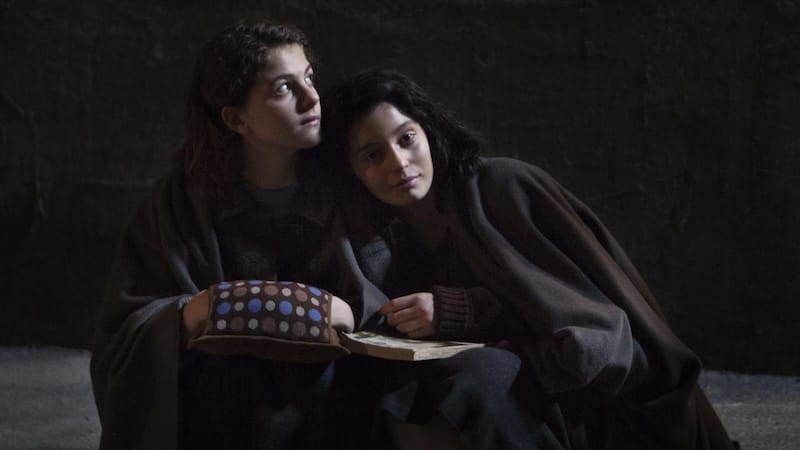
The show often erases ambiguity by making one character more clearly right or wrong. In Ferrante's narrative, the girls' contradictory traits are what make them so intriguing. Lenù is outwardly kind, but routinely plots Lila's demise in her head. Lila pushes Lenù away by calling her gross and palling around with Carmela (Francesca Pezzella), but she refuses to let a Latin failure occur on her watch. This complicated loyalty doesn't always come through in the show; it's something the novel carefully builds using Elena's hindsight reflections.
Something the show made me realize that I hadn't picked up on in the book is the immediate contrast between how each girl approaches her burgeoning sexuality. Lenù finds power in "the magnetic force my body exerted on males" and believes she's channeling Lila when she brazenly accepts money for a glimpse of her breasts. What she doesn't understand is that for Lila, sex and violence are inextricably linked and thus, undesirable. The Solaras use women of a lesser economic class, like Ada (Ulrike Migliaresi), to demonstrate the power they have over the neighborhood. When Lila later pulls a knife on Marcello to defend Lenù, it's her way of telling him that she will never willingly succumb to his manipulation. For women trapped in the rione, sex is strategic; make the wrong move and you're suddenly married to an abusive conman with a child on the way. Lenù actually has a chance to escape it all and, jealousy aside, Lila won't let anything stand in her way.
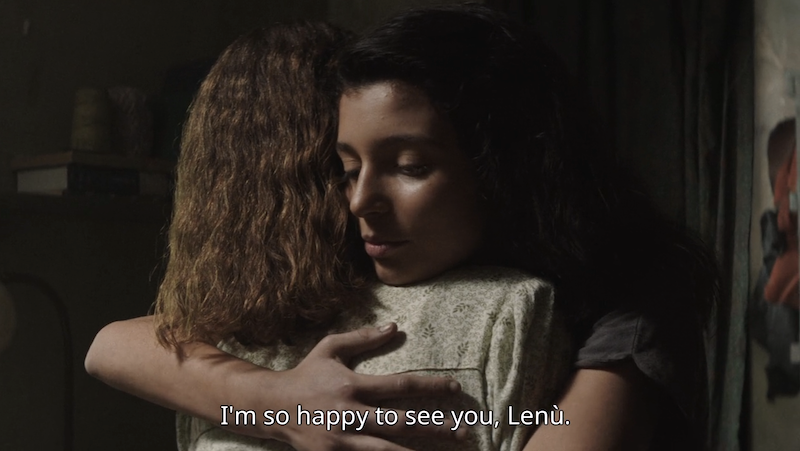
Random observations:
- Lenù's titty money only gets her ~29% of a sfogliatella at the Bar Solara (or it would have if Marcello hadn't covered the cost). If my math is correct, 10 lire in ~1956/7 is the 2024 USD equivalent of ~$0.22. For less than the price of one gumball, those little shits get to see two boobs. Lenù should have taken the money and asked someone from the neighborhood to break their legs.
- One moment of comic relief: when Manuela Solara calls Antonio a "pissant" after her sons beat Antonio to a bloody pulp.
- I love Maestro Ferraro's excitement for the library. Vittorio Viviani has made him into a memorable character by infusing him with personality that wasn't present in the book.
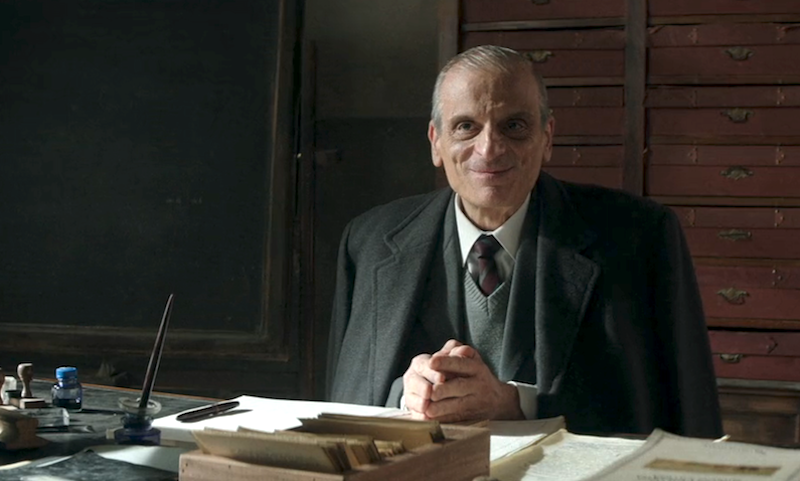
- Books mentioned: "Moby-Dick" (Melville, 1851), "Three Men in a Boat" (Jerome, 1889), "Bruges-la-Morte" (Rodenbach, 1892), "A Gentleman of Courage" (Curwood, 1924), "Voyages Around the World" (Fanning, 1833), and "Crime and Punishment" (Dostoevsky, 1866). Even if Donato Sarratore's book of poetry was real, it still wouldn't count.
- The photo in Lenù's classroom (next to the cross) is of Giovanni Gronchi, Italy's president from 1955–1962. All I really know about him is that he was one of the founders of the Christian Democratic Party and that he pissed off the Roman Catholics by becoming the first head of state to visit Moscow post-WWII. I'm reading Paul Ginsborg's "A History of Contemporary Italy" (2003) to get a better handle on the political climate of the time.
- I would have lost my shit if someone told me that menstruation "means you’re grown up and can have kids." At thirteen?! Get the fuck out of here. (Fellow millennials: raise your hand if you learned about reproductive health from "The Care & Keeping of You.")
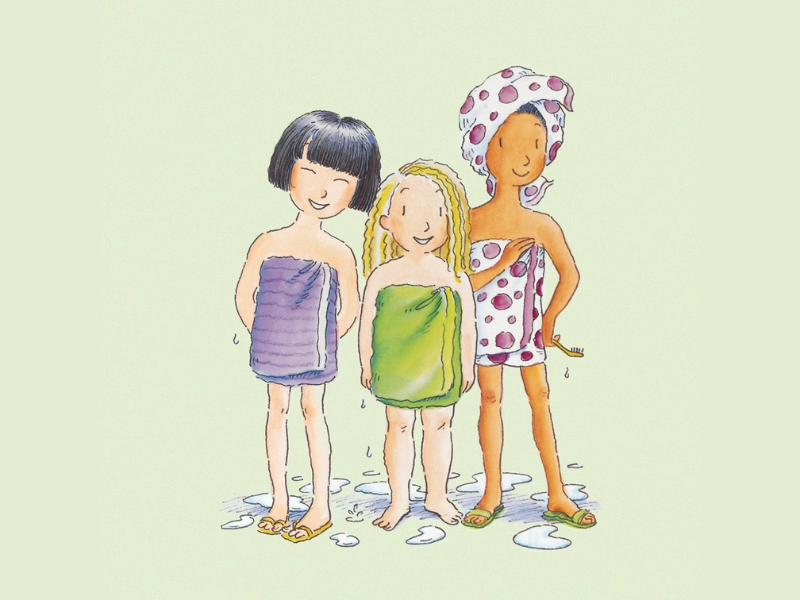
- Maestra Oliviero strikes again: Lenù's going to high school. Her face during the library ceremony, when the Cerullos sweep the awards, kills me. Talk about a character who contains multitudes! My theory is that she's nasty to Lila via Lenù because she understands the benefits of their contentious dynamic.
- I have complicated feelings about Pasquale (Francesco Catena) that linger throughout the series. He has the same shitty impulses as all of the other men in the neighborhood, but he's a critical enough thinker to challenge them. Sidenote: this post on Reddit crushed me.

